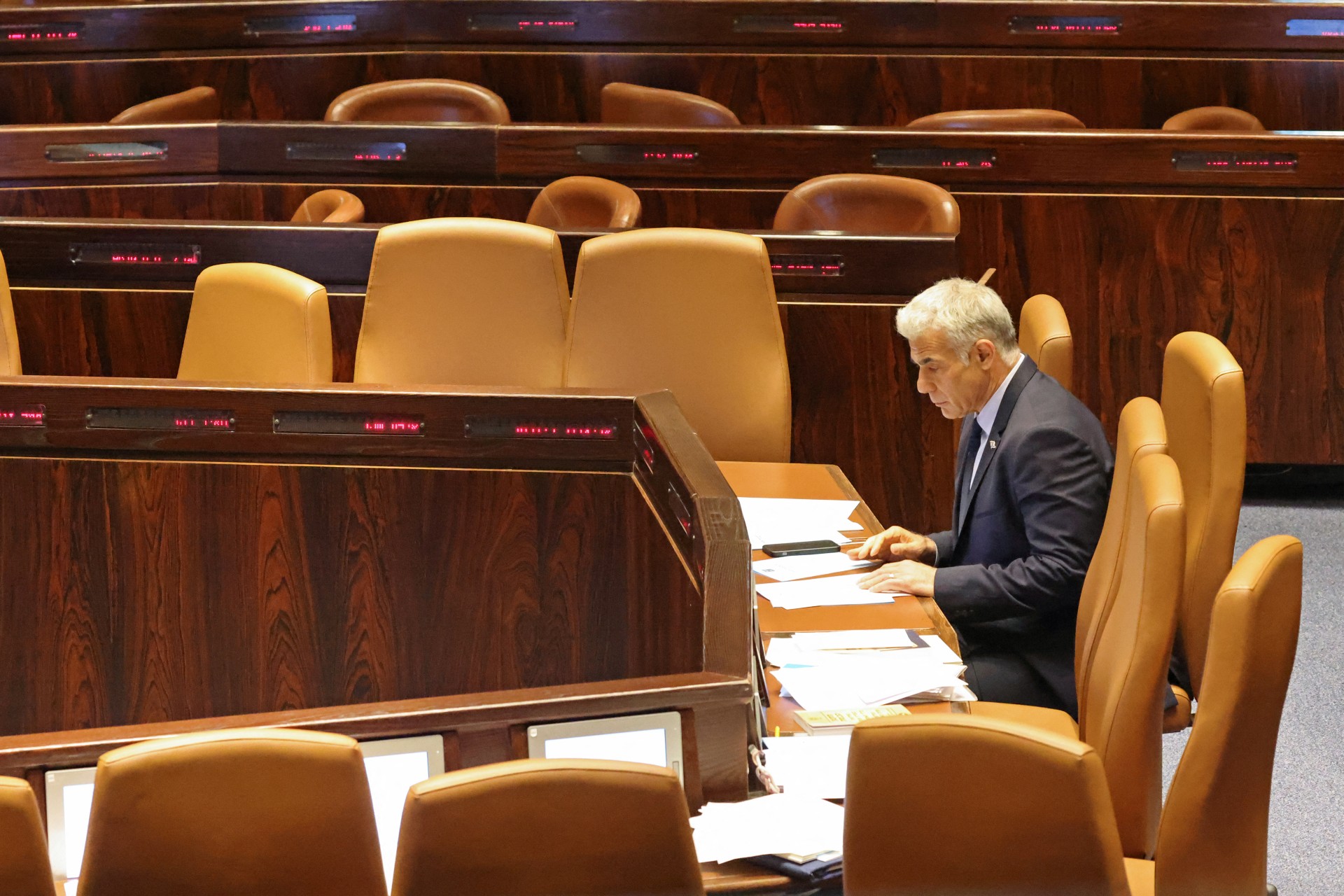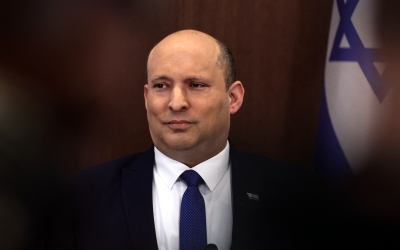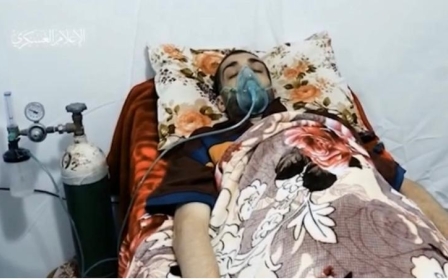Israeli politicians agree on one thing: They need more money
“The price of democracy”. This is the new mantra the citizens of Israel are about to hear ad nauseam over the next four months as their politicians justify making the public pay for yet another election. More specifically, until 1 November, the day set for Israelis to vote for the fifth time in three and a half years.
These are the first elections in 12 years when Benjamin Netanyahu does not run as incumbent prime minister and the first with Yair Lapid in the hot seat instead. According to Finance Minister Avigdor Lieberman, who claimed elections could be avoided, the cost of the upcoming polls will be 2.4bn shekels ($700m).
“I hope those responsible for this unnecessary expenditure will pay the price in the upcoming elections,” he said, hoping voters would shun them at the ballot box.
But no, they will not. The only ones to pay the price will be Israelis struggling with the shaky post-Covid-19 economic situation, soaring prices and 4 percent inflation. It is safe to say that most Israelis feel hostage to the political system, a situation where they pay their own captors.
New MEE newsletter: Jerusalem Dispatch
Sign up to get the latest insights and analysis on Israel-Palestine, alongside Turkey Unpacked and other MEE newsletters
When politicians say “the price of democracy” they mean the public money spent on five successive and inconclusive elections. The four rounds between 2019-2021 cost over 10bn shekels ($2.86bn), and there is no indication the 2022 version will have a happier end.
“Democracy comes with a price tag,” Shlomo Karhi, an MP from Netanyahu’s Likud party, said when defending the new polls, resorting to the cliche all politicians use to justify the collective financial punishment inflicted on citizens.
Not uncoincidentally, Karhi said it just hours before parties from across the political divide came to an agreement to give themselves more state funding for electoral campaigns by some 30 million shekels ($8.5m).
That was, by the way, the only agreement they reached without issues last week. All other bills, those that could actually improve the life of citizens, failed miserably. Now watch that money be spent on more smear and fear campaigns in what is set to be Israel’s longest election campaign ever.
'Israel is in fact one of the leading countries in the world in state funding for political parties'
- Moshe Klughaft, international strategic advisor
“Israel is in fact one of the leading countries in the world in state funding for political parties,” Moshe Klughaft, an international strategic advisor, told Middle East Eye.
“The main reason is the fact that in order to prevent corruption, private donations to a party are limited by law to about $700 only in an election year, compared to France with tens of thousands, for example. Most funding in Israel is indeed state funding.”
Likud MP David Bitan had an additional explanation for the burden imposed on the people: “The cost of all campaigns are soaring,” he complained on Tuesday. “All advisors charge more, all companies involved raise prices. Due to the recurring rounds of elections all parties face difficulty in paying the debts from preceding rounds.”
Clearly to Israel’s politicians it makes sense to blame the voters for being indecisive and thus imposing an endless chain of electoral rounds on struggling politicians.
Though Israel’s parties were happy to give themselves more cash, it caused public discontent, though the backlash has had little effect. The judge in charge of the committee for parties’ funding, Ayala Procaccia, approved the raise, allowing an extra 21.5m shekels out of the 30m requested. That works out at around 180,000 shekels per seat.
She did, in fact, accept the politicians’ arguments that the price of running campaigns is soaring.
Bitan celebrated by wandering around Israel’s parliament, the Knesset, handing out sweets. The image struck a low tone, particularly when shown on the news just before another raise on the price of basics like milk and electricity was announced.
Teachers on strike
It’s almost funny how politicians were happy to use soaring prices to secure more money for themselves, but reject the argument when it comes to appeals to raise the miserable salaries of teachers and police officers.
Israeli MPs earn about 45,000 shekels ($12,800) per month regardless of how hard they work or not. A new teacher has to make ends meet with less than 5,000 ($1,400).
Clearly, the Israeli parliament is a much more generous employer. Little wonder, then, that so many people flock to get a much-coveted seat in the elections while so many teachers and police officers quit their jobs at the same time.
According to new data published by the Central Bureau of Statistics, the number of teachers who quit the profession is up 23 percent over last year, while the number of new teachers entering the profession is 12 percent lower. Six hundred police officers quit the service over the last year, with low salaries the main cause.
As politicians and eager candidates better their own conditions, the teachers’ union is engaged in an almost humiliating struggle to make their salaries more reasonable.
Schools open and close to the ebb and flow of the negotiations, giving helpless parents forced to stay home with children on strike days plenty of time to listen to their representatives in parliament heroically fight to get more finances for their upcoming smear campaigns.
News shows in Israel cover profusely the soaring prices of housing and conduct somber interviews with elderly people and young couples who can no longer afford the skyrocketing rents. Then they move to cover recent developments in the political arena, including the new financial demands of politicians already engaged in their personal campaigns.
Netanyahu is busy posting outrageous posts and tweets on social media, brutally attacking the government with mostly false allegations.
Over recent weeks, he has primarily focused on the cost-of-living crisis affecting every household. Most posts now end with the promise “here we come to your rescue, soon,” with an almost religious undertone of a saviour on duty.
In the meantime, he made sure his Likud party gets about seven million shekels more for the campaign to get him back in power - and is about to get much more to finance its primaries to choose candidates. Another democratic process that comes with a high price tag.
Likud, being the largest party and the one with the biggest number of registered members, is the main beneficiary of all-party public funding.
The simple idea of cutting short - very short - this fifth election campaign and thus saving the public money did not even occur to either the coalition or the opposition. There was no public demand to do so either.
Last week, in an attempt to revive the spirit of 2011’s social protest, several young activists set up tents in the heart of Tel Aviv. After a few days, the tent protest folded.
There is no energy left for this kind of conduct. It will take a brutal election campaign to engage the public in an expensive fifth round while, for the time being, public opinion polls just predict more of the same. Netanyahu will appeal to his camp to go to the ballot box and bring him back home where he belongs.
Lapid will address his side, asking supporters to keep him in office. The smaller parties will pay the electoral price of these tactics; the public will pay the financial price.
Middle East Eye delivers independent and unrivalled coverage and analysis of the Middle East, North Africa and beyond. To learn more about republishing this content and the associated fees, please fill out this form. More about MEE can be found here.






